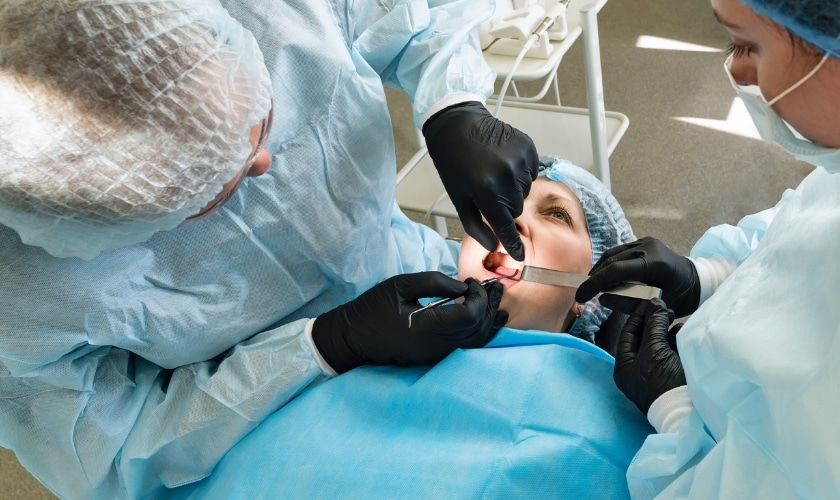- Insurance & Financing
- Dental Services
- Locations
- Dentist in Fort Worth
- Dental Dentures – Fort Worth, TX
- Dental Implants – Fort Worth, TX
- Teeth Whitening – Fort Worth, TX
- Dental Emergency – Fort Worth, TX
- Invisalign – Fort Worth , TX
- Family Dentist – Fort Worth, TX
- Dental Financing – Fort worth , TX
- Dental Bridges – Fort Worth, TX
- Dental Crowns – Fort Worth, TX
- Tooth Extractions – Fort Worth , TX
- Root Canal Therapy – Fort Worth, TX
- Sedation Dentistry – Fort Worth, TX
- Dentist in Crowley
- Dentist in Grand Prairie
- Dental Dentures – Grand Prairie, TX
- Dental Implants – Grand Prairie, TX
- Teeth Whitening Grand Prairie, TX
- Dental Sealants – Grand Prairie, TX
- Dental Braces – Grand Prairie, TX
- Dental Crowns – Grand Prairie, TX
- Periodontal Gum Disease – Grand Prairie, TX
- TMJ – Grand Prairie, TX
- Dental Emergency – Grand Prairie, TX
- Dental Bridges – Grand Prairie, TX
- Tooth Extraction – Grand Prairie, TX
- Dentist in Waco
- Teeth Whitening Waco, TX
- Dental Implants Waco, TX
- Dental Dentures Waco, TX
- Dental Emergency Waco, TX
- Root Canal Therapy – Waco, TX
- Dental Braces – Waco, TX
- Dental Financing – Waco, TX
- Dental Crowns – Waco, TX
- Dental Sealants – Waco, TX
- Invisalign – Waco , TX
- Periodontal Gum Disease – Waco, TX
- Sedation Dentistry Waco, TX
- TMJ – Waco, TX
- Tooth Extractions – Waco, TX
- Dentist in Dallas
- Dentist in Lancaster
- Dentist in Longview
- Dental Braces – Longview, TX
- Dental Crowns – Longview, TX
- Dental Dentures – Longview, TX
- Dental Emergency – Longview, TX
- Dental Financing – Longview, TX
- Dental Implants – Longview, TX
- Dental Sealants – Longview, TX
- Invisalign – Longview, TX
- Periodontal Gum Disease – Longview, TX
- Root Canal Therapy – Longview, TX
- Sedation Dentistry – Longview, TX
- Teeth Whitening – Longview, TX
- TMJ Treatment – Longview, TX
- Tooth Extraction – Longview, TX
- Dentist in Tyler, TX
- Dental Braces – Tyler, TX
- Dental Crowns – Tyler, TX
- Dental Dentures – Tyler, TX
- Dental Emergency – Tyler, TX
- Dental Financing – Tyler, TX
- Dental Implants – Tyler, TX
- Dental Sealants – Tyler, TX
- Invisalign – Tyler, TX
- Periodontal Gum Disease Tyler, TX
- Root Canal Therapy – Tyler, TX
- Sedation Dentistry – Tyler, TX
- Teeth Whitening Tyler, TX
- TMJ Treatment – Tyler, TX
- Tooth Extraction Tyler, TX
- Dentist in Denton, TX
- Dental Braces – Denton, TX
- Dental Crowns – Denton, TX
- Dental Dentures – Denton, TX
- Dental Emergency – Denton, TX
- Dental Financing – Denton, TX
- Dental Implants – Denton, TX
- Dental Sealants – Denton, TX
- Invisalign – Denton, TX
- Periodontal Gum Disease – Denton, TX
- Root Canal Therapy – Denton, TX
- Sedation Dentistry – Denton, TX
- Teeth Whitening – Denton, TX
- TMJ Treatment – Denton, TX
- Tooth Extraction – Denton, TX
- Dentist in Lake Worth, TX
- Dental Braces – Lake Worth, TX
- Dental Crowns – Lake Worth, TX
- Dental Dentures – Lake Worth, TX
- Dental Emergency – Lake Worth, TX
- Dental Financing – Lake Worth, TX
- Dental Implants – Lake Worth, TX
- Dental Sealants – Lake Worth, TX
- Invisalign – Lake Worth, TX
- Periodontal Gum Disease Lake Worth, TX
- Root Canal Therapy – Lake Worth, TX
- Sedation Dentistry – Lake Worth, TX
- Teeth Whitening – Lake Worth, TX
- TMJ Treatment – Lake Worth, TX
- Tooth Extraction – Lake Worth, TX
- Dentist in Cleburne, TX
- Dental Braces – Cleburne, TX
- Dental Crowns – Cleburne, TX
- Dental Dentures – Cleburne, TX
- Dental Emergency – Cleburne, TX
- Dental Financing – Cleburne, TX
- Dental Implants – Cleburne, TX
- Dental Sealants – Cleburne, TX
- Invisalign – Cleburne, TX
- Periodontal Gum Disease Cleburne, TX
- Root Canal Therapy – Cleburne, TX
- Sedation Dentistry – Cleburne, TX
- Teeth Whitening – Cleburne, TX
- TMJ Treatment – Cleburne, TX
- Tooth Extraction – Cleburne, TX
- Dentist in Mansfield, TX
- Cosmetic Dentistry – Mansfield, TX
- Dental Dentures – Mansfield, TX
- Dental Implants – Mansfield, TX
- Dental Emergency – Mansfield, TX
- Teeth Whitening – Mansfield, TX
- Invisalign – Mansfield, TX
- Family Dentist – Mansfield, TX
- Dental Financing – Mansfield, TX
- Dental Bridges – Mansfield, TX
- Dental Crowns – Mansfield, TX
- Tooth Extractions – Mansfield, TX
- Root Canal Therapy – Mansfield, TX
- Sedation Dentistry – Mansfield, TX
- Dentist in Fort Worth
- What to Expect
- Current Offers
- About Us

"People Love Us On Google"
1470+ Google reviews
New patients Welcome! Extended hours!

